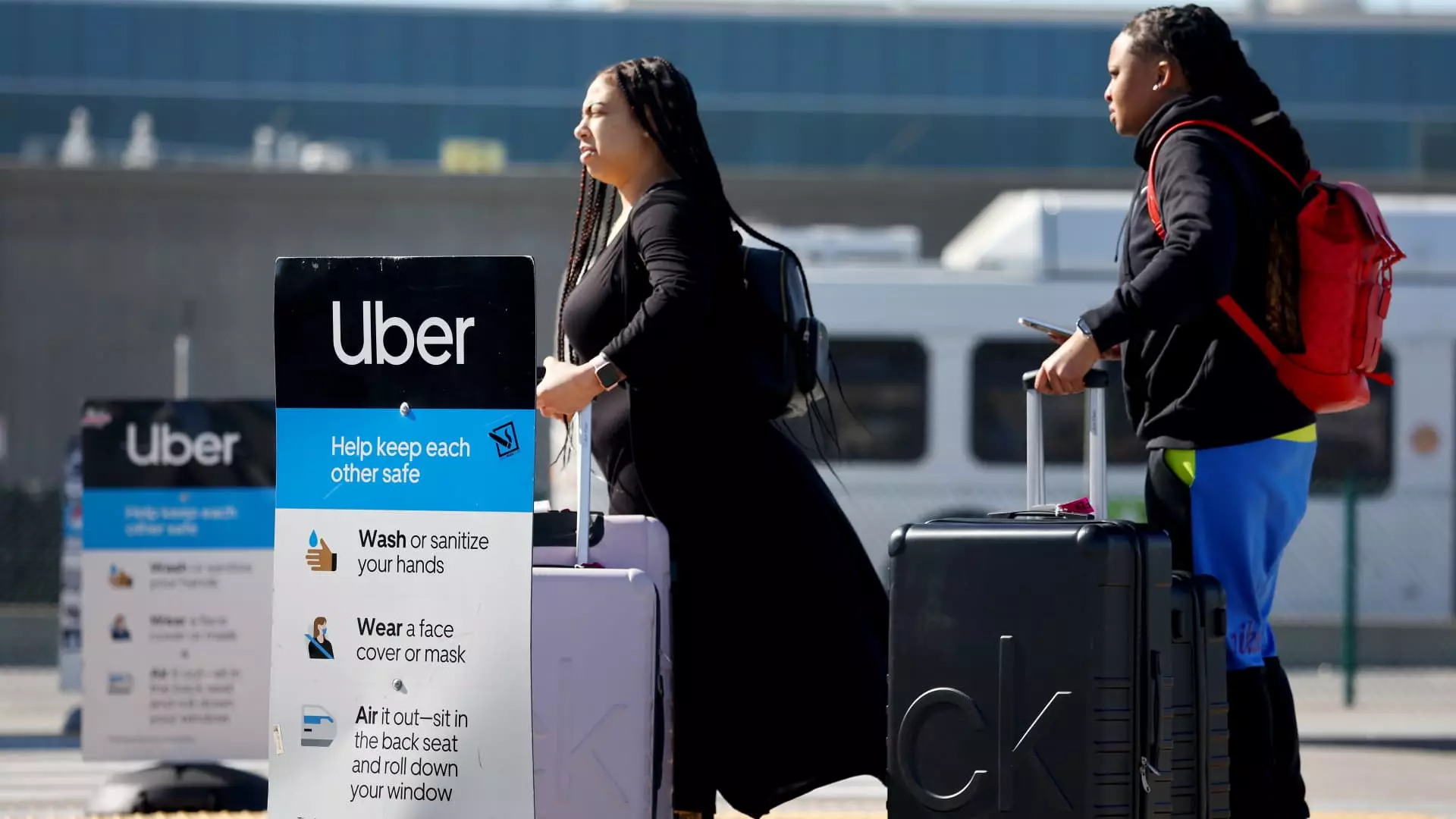In a notable shift in travel partnerships, Delta Air Lines has announced its decision to link its SkyMiles loyalty program with Uber, effectively ending its eight-year alliance with Lyft. This strategic transition reflects Delta’s commitment to enhancing customer experiences during travel, particularly as air travel continues to rise, leading to increased competition among airlines for customer loyalty and engagement. The collaboration, which will take effect this spring, aims to provide passengers with more efficient options while traveling to and from the airport, particularly as ride-hailing services have become integral to modern travel routines.
By enabling customers to link their Delta SkyMiles accounts to Uber, members of the loyalty program can earn miles not only for their flights but also during their rides. This is a significant development as travelers can now accumulate rewards in a more seamless manner. As designated by Uber, customers can earn one mile per dollar spent on standard UberX rides and significantly more—two miles for premium rides and three miles on Uber Reserve trips. Furthermore, Delta SkyMiles members will also receive rewards for Uber Eats deliveries when spending over $40, illustrating a comprehensive approach to customer rewards that goes beyond traditional travel metrics.
Delta’s new alliance with Uber illustrates a broader trend in the airline industry where operators are increasingly aligning with well-known brands to enhance their loyalty offerings. Other notable partnerships include collaborations with Starbucks, Hertz, and Ticketmaster, demonstrating Delta’s ambition to solidify its position as a leader in the competitive world of airline loyalty programs. Such partnerships not only drive revenues but also enrich the overall customer experience, providing a multitude of avenues for travelers to earn and redeem miles.
In contrast, the partnership with Lyft, which has been beneficial to both companies over the years, will conclude as Delta shifts its focus toward larger platforms. Currently, customers who still have linked accounts with Lyft can continue to earn miles until April 7, 2024. Delta emphasized that communications regarding this transition would be promptly issued to impacted users, reflecting a commitment to customer service during this period of change.
Despite the lack of a detailed explanation for the switch away from Lyft, there are underlying business implications that hint at why Delta chose to ally with Uber. By aligning with Uber, which has a significantly larger user base (161 million monthly active users compared to Lyft’s 24.4 million), Delta hopes to tap into a wider market. This shift is particularly strategic given that Uber is not just limited to ride-hailing but also encompasses a food delivery service that has gained popularity, allowing Delta to provide its customers greater flexibility and usability of their loyalty rewards.
Delta’s credit card partnership with American Express may also have influenced this strategic decision. As AmEx cardholders are offered incentives for Uber services, this relationship could enhance Delta’s reach and customer engagement by streamlining rewards across services. The airline has previously projected substantial revenue from its partnership with American Express, suggesting lucrative opportunities ahead.
As travel continues to evolve and adapt, Delta Air Lines, in partnership with Uber, demonstrates a pivotal move towards creating a more integrated travel experience. In tandem with its technological upgrades—such as an AI-powered assistant and improved inflight entertainment announced recently—Delta is not just focused on flying passengers but also ensuring that their entire journey is optimized.
The collaboration debuted at the CES tech show in Las Vegas, representing a forward-thinking approach in the airline’s marketing strategy. As travelers increasingly seek convenience and connectivity, Delta’s decision to innovate its loyalty program and partner with Uber positions it favorably amidst growing competition in the airline industry.
Ultimately, this partnership signals not only a change in ride-hailing affiliations but also a significant evolution of customer loyalty programs in the airline sector. As Delta and Uber embark on this new venture, customers can anticipate a more rewarding travel experience that goes beyond conventional methods, further revolutionizing how travelers perceive and interact with loyalty programs in air travel.

